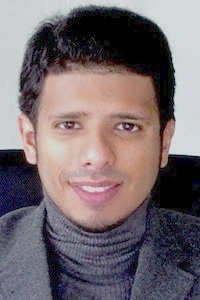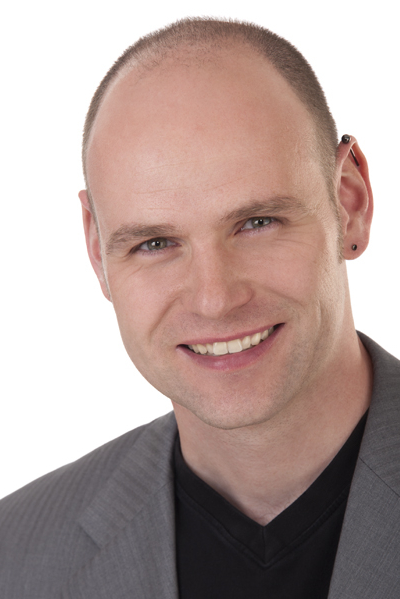Paper Presentations
 Requirements-driven Social Adaptation: Expert Survey,
Requirements-driven Social Adaptation: Expert Survey,
Malik Almaliki - Software Systems Research Centre at Bournemouth University, United Kingdom
Pitch Statement: Give us your feedback, we guarantee you a better service in return.
I am a PhD student working in the field of Software engineering at the School of Design, Engineering and Computing at Bournemouth University, UK.
 Digital Addiction: a Requirements Engineering Perspective,
Digital Addiction: a Requirements Engineering Perspective,
Amen Alrobai - Software Systems Research Centre at Bournemouth University, United Kingdom
Pitch Statement: Digital Addiction (DA) has become a serious issue that has a diversity of socio-economic side effects.
I am a research student at the School of Design, Engineering and Computing and a member of the Software Systems Research Centre at Bournemouth University, UK.
 Measuring and Improving the Completeness of Natural Language Requirements,
Measuring and Improving the Completeness of Natural Language Requirements,
Alessio Ferrari - CNR-ISTI, Italy
Pitch Statement: Providing complete requirements is a tough challenge. But we can start to face it.
Alessio Ferrari is a Researcher at CNR-ISTI. He works on NLP techniques applied to RE.
 Analyzing the Effect of the Collaborative Interactions on Performance of Requirements Validation,
Analyzing the Effect of the Collaborative Interactions on Performance of Requirements Validation,
Maya Daneva - University of Twente, The Netherlands
Pitch Statement: If you want it fast, give the requirements validation tasks to your analysts. But your clients will love it if you involve them, too.
Maya works at the University of Twente, NL, helping businesses develop empirical evidence to validate RE results.
 Feedback-aware Requirements Documents for Smart Devices,
Feedback-aware Requirements Documents for Smart Devices,
Erik Kamsties – Dortmund University of Applied Sciences and Arts, Germany
Pitch Statement: Feedback is important for learning. We look at how changes in requirements of self-adaptive systems can be communicated back to requirements engineers.
Erik is active in RE since 1996, his current research focus is on industrial applications of RE.
 (Semi-)Automatic Categorization of Natural Language Requirements,
(Semi-)Automatic Categorization of Natural Language Requirements,
Eric Knauss – Chalmers, Univ. of Gothenburg, Sweden
Pitch Statement: Socio-technical approach to requirements categorization: We investigate levels of automation and their effect on organizational learning. Get more information on the paper here.
Eric works at Chalmers, Univ. of Gothenburg on managing requirements and related knowledge in SE.
 Improving the Understandability of Formal Specifications: An Experience Report,
Improving the Understandability of Formal Specifications: An Experience Report,
Felix Kossak - Software Competence Center Hagenberg GmbH (SCCH), Austria
Pitch Statement: We present our experience of rendering formal specifications to be better understandable for lay people, based on the ASM method.
Felix Kossak is industrial researcher specialised in rigorous methods for software engineering.
 Answer-Set Programming in Requirements Engineering,
Answer-Set Programming in Requirements Engineering,
Wenbin Li - University of Kentucky, USA
Pitch Statement: The paper demonstrates applicability and effectiveness of answer-set programming tools in checking consistency of temporal software requirements.
Wenbin Li is a PhD student in the University of Kentucky. Li studies requirements consistency.
 A Requirements-led Approach for Specifying QoS-aware Service Choreographies: An Experience Report,
A Requirements-led Approach for Specifying QoS-aware Service Choreographies: An Experience Report,
James Lockerbie – City University London , United Kingdom
Pitch Statement: We present an integrated approach for designing service choreographies from system requirements to deliver more adaptive QoS-aware software systems.
James has been a researcher since 2005, with interests in goal modelling and quality requirements.
 Is requirements engineering useless in game development?,
Is requirements engineering useless in game development?,
Andrey Maglyas - Lappeenranta University of Technology, Finland
Pitch Statement: RE should be relevant to game development, but is this true and if it is, how does the game industry apply RE in practice? We will explain!
Andrey Maglyas is a postdoc researcher at LUT where he primarily studies software product management.
 Problem-Based Requirements Interaction Analysis,
Problem-Based Requirements Interaction Analysis,
Rene Meis - University of Duisburg-Essen, Germany
Pitch Statement: We present a formal method for the reduction of requirements interaction candidates. The reduction drastically lowers the effort of in-depth analyses.
Rene Meis is a PhD student at the University Duisburg-Essen. His research focus is privacy-aware RE.
 Argumentation-based Discussion for User Forum: A Research Preview,
Argumentation-based Discussion for User Forum: A Research Preview,
Itzel Morales Ramírez - University of Trento, Italy
Pitch Statement: The key idea in our approach is to exploit AI argumentation, thus allowing participants to get an overview of the trend of such discussions, and support analysts to identify important requests.
Itzel Morales Ramírez is a PhD candidate at the University of Trento, Italy. She belongs to the Software Engineering (SE) unit at Fondazione Bruno Kessler.
 Safety Evidence Traceability: Problem Analysis and Model,
Safety Evidence Traceability: Problem Analysis and Model,
Sunil Nair - Simula Research Laboratory, Software Engineering, Norway
Pitch Statement: Modeling the evidence traces for safety certification – Untangling the yarn!
Sunil is a PhD student at Simula Research Labs. Research interests-system safety & cognitive psychology in SE.
 Systematic Elaboration of Compliance Requirements Using Compliance Debt and Portfolio Theory,
Systematic Elaboration of Compliance Requirements Using Compliance Debt and Portfolio Theory,
Bendra Ojameruaye - University of Birmingham, United Kingdom
Pitch Statement: This paper explores the concept of compliance debt as a form of technical debt and proposes a goal-oriented method using portfolio-based analysis to systematically refining compliance goals.
Bendra Ojameruaye is a Doctoral Research at University of Birmingham, UK. She is interested in economic-driven and goal based approaches for eliciting and managing compliance requirements.
 State of Practice of User-Developer Communication in Large-Scale IT Projects – Results of an Interview Series with Experienced Practitioners,
State of Practice of User-Developer Communication in Large-Scale IT Projects – Results of an Interview Series with Experienced Practitioners,
Barbara Paech - University of Heidelberg, Germany
Pitch Statement: This paper presents insights from expert interviews on current practices for user-developer communication and consequences of missing communication.
Barbara Paech is particularly active in the area of requirements, rational and quality engineering.
 Requirements Reuse and Patterns: A Survey,
Requirements Reuse and Patterns: A Survey,
Cristina Palomares - Universitat Politècnica de Catalunya, Spain
Pitch Statement: This paper presents the preliminary results of a survey initiated at REFSQ’13 that addresses the question of “What the current level of adoption of requirement reuse practises in organisations is”.
Cristina Palomares is a PhD student in the GESSI@UPC research group. Her main research area is requirement reuse.
 A Requirements Monitoring Infrastructure for Very-Large-Scale Software Systems,
A Requirements Monitoring Infrastructure for Very-Large-Scale Software Systems,
Rick Rabiser - Johannes Kepler University Linz, Austria
Pitch Statement: Despite many advances, requirements monitoring remains challenging particularly for very-large-scale software systems with SoS architectures.
Rick Rabiser is a senior researcher at the Christian Doppler Lab. MEVSS (mevss.jku.at) at JKU Linz, Austria.
 An Analysis of Priority-based Decision Heuristics for Optimizing Elicitation Efficiency,
An Analysis of Priority-based Decision Heuristics for Optimizing Elicitation Efficiency,
Norman Riegel - Fraunhofer IESE, Germany
Pitch Statement: Requirements elicitation efficiency can be changed significantly when applying different decision heuristics!
Norman Riegel is working since 2007 as a requirements engineer at Fraunhofer IESE, Germany.
 INCREMENT: A Mixed MDE-IR Approach for Regulatory Requirements Modeling and Analysis,
INCREMENT: A Mixed MDE-IR Approach for Regulatory Requirements Modeling and Analysis,
Nicolas Sannier - INRIA, France
Pitch Statement: INCREMENT is an hybrid modeling and information retrieval approach that address tje nuclear regulation formalization and analysis concern.
Nicolas Sannier holds a MsC and PhD in computer science. He worked on nuclear regulations modeling.
 Experience-oriented Approaches for Teaching and Training Requirements Engineering: An Experience Report,
Experience-oriented Approaches for Teaching and Training Requirements Engineering: An Experience Report,
Rüdiger Weißbach - Hamburg University of Applied Sciences, Germany and Andrea Herrmann - Herrmann & Ehrlich, Germany
Pitch Statement: Four approaches for experience-oriented RE training are discussed. How does training need to depend on participants´ background?
With the experience of 22 years in industry before, Rüdiger Weißbach is professor since 2009.
Andrea Herrmann is teaching RE for 8 years and tries to bridge the gap between theory and practice.
 A Systematic Literature Review of Requirements Modeling and Analysis for Self-adaptive Systems,
A Systematic Literature Review of Requirements Modeling and Analysis for Self-adaptive Systems,
Zhuoqun Yang - Chinese Academy of Sciences, China
Pitch Statement: This paper provides an updated review of the research literature, enabling researchers and practitioners to better understand the research trends in these areas and identify research gaps which need to be further studied.
Zhuoqun Yang is currently a PhD student majoring in computer software and theory at the Academy of Mathematics and Systems Science, Chinese Academy of Sciences.

